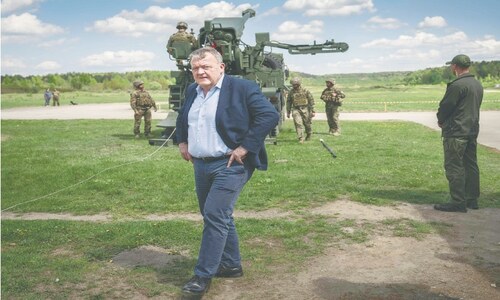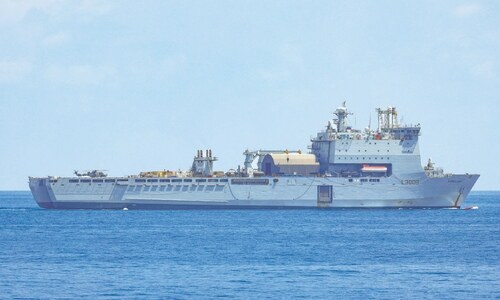MANAMA, Dec 21: Gulf Arab states, worried by rising Shia power in Iraq, urged the United States on Tuesday to ensure all religious and ethnic groups take part in next month's elections.
After a two-day summit, the six pro-Western oil-rich states also condemned foreign meddling in the affairs of their neighbour, a veiled reference to Iran, which the United States accuses of influencing Iraqi groups.
Saudi Arabia, Kuwait and Bahrain fear their own Shia populations could demand a bigger political say if Iraq's Jan 30 parliamentary election hands power to the Shias.
They are also concerned that militancy in Iraq could spill over into the oil-rich Gulf, already battling a wave of radicalism by sympathizers of Al Qaeda leader Osama bin Laden.
"We hope that the United States works effectively with the United Nations and the international community to allow all the people of Iraq, from all sects, to participate in the political process which is represented in holding elections," the Gulf Cooperation Council (GCC) said.
Asked about alleged Iranian interference in Iraq, Bahrain's Foreign Minister Sheikh Mohammed bin Khalifa told reporters: "There is total agreement that there should absolutely be no interference in Iraq from any party.
"We hope that the Iraqi people can move to another phase of security and safety ... but this interference leads to instability and instability in Iraq is instability in the (whole) region," he added.
US-GULF TALKS TO GO ON: The alliance also called on US President George Bush to make good on promises to set up an independent Palestinian state "existing peacefully beside an Israeli state" and renewed their commitment to fight terror.
The statement made no direct mention of a U.S.-Bahraini free trade deal that has raised the ire of Saudi Arabia and cast a pall over the summit. Sheikh Mohammed said the Gulf leaders had agreed to postpone discussions within the GCC about the pact, but added that implementation of the deal and bilateral talks between the United States and other Gulf countries would proceed.
"All GCC states are bilaterally negotiating with the United States because the United States says it cannot negotiate with a bloc," he said. "The deals are going on and the negotiations are going on."
Omani Foreign Affairs Minister Youssef bin Alawi bin Abdullah told reporters: "We are negotiating now with the United states and we believe that economic ties with America...will bring great benefits to the Gulf region."
Analysts say Saudi Arabia fears U.S. goods imported tariff-free into Bahrain will be re-sold in its market. It is the only Gulf state with a land link to the island of Bahrain, the poorest Gulf Arab state.
Washington also plans to hold talks with the UAE to sign a similar deal to abolish external tariffs and give U.S. goods a foothold inside the Gulf. The bloc, which owns nearly half the world's oil reserves, plans a common market by 2007 and a single currency by 2010. -Reuters
















































Dear visitor, the comments section is undergoing an overhaul and will return soon.